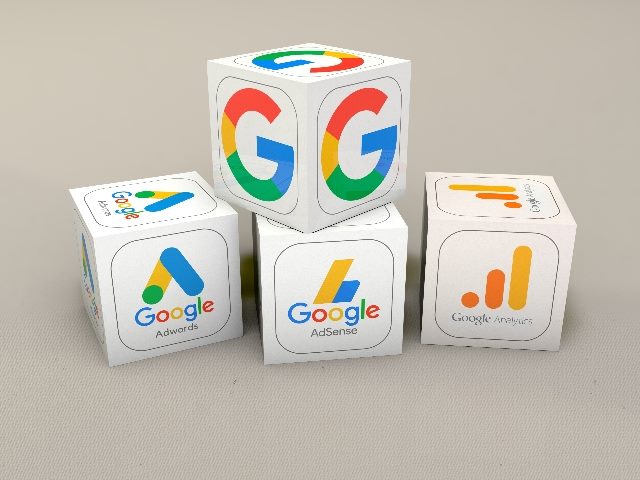The Gist
- Federal judge declares Google a monopolist. A U.S. federal judge ruled that Google is a monopolist and has maintained its monopoly through anticompetitive practices.
- Google's exclusive agreements deemed anticompetitive. The court found that Google’s exclusive distribution agreements with device manufacturers and browser developers significantly hindered competition.
- Implications for digital advertising and the marketing funnel. The ruling underscores the continued relevance of the marketing funnel in digital advertising.
A U.S. federal judge in a historic decision today ruled that "Google is a monopolist, and it has acted as one to maintain its monopoly."
Amit P. Mehta of the United States District Court for the District of Columbia made that judgment in a 286-page decision in the case against the search giant, which consolidated two separate lawsuits — one filed by the U.S. Department of Justice (DOJ) and 11 states, and another by 38 states. Mehta ruled Google violated Section 2 of the 134-year-old federal antitrust Sherman Act.
Google owns more than 91% of the worldwide search market, and the runner-up, Microsoft's Bing, comes in at around 4%. Google unlawfully maintained its monopoly in the general search services market and the general search text advertising market, according to the federal decision.

This ruling marks a significant milestone in the ongoing scrutiny of Big Tech's market practices. It ended a nine-week trial that concluded in November 2023, and the court found that Google's default search agreements with companies like Apple and Android manufacturers significantly hindered competition. The court's memorandum opinion detailed how these agreements foreclosed a substantial share of the market, depriving rivals of scale and reducing incentives to invest and innovate.
The case ultimately focused on Google's use of exclusive distribution agreements to cement its dominance. These agreements required device manufacturers and browser developers to preinstall Google as the default search engine, effectively stifling competition from rivals like Microsoft’s Bing and other search engines.
"Ultimately, the court concludes that Google’s exclusive distribution agreements have contributed to Google’s maintenance of its monopoly power in two relevant markets: general search services and general search text advertising," Mehta wrote.
Google's Search Dominance Faces New Threats
Is OpenAI's Sam Altman smiling somewhere? We think that's a likely outcome here, since OpenAI debuted a potential major competitor to Google in the search market last month: SearchGPT. Search may be disrupted by AI — Google's thinking that may be the case itself, after all.
"Google’s dominance in search hasn’t been because of anti-competitive practices. It’s because Google has been the best search experience out there for a really long time," said Jason Seeba, chief marketing officer of Session AI. "This antitrust case isn’t going to change that, but new AI search will."
The 1-2 punch of the antitrust ruling and new AI search innovations may force Google to cannibalize some of their search revenue, Seeba added. They’ll need to deliver AI answers versus a page of blue links.
Seeba also sees a convergence of threats to Google's dominance in addition to today's ruling: Google’s reversal on cookies and the advent of the first real AI search challengers (SearchGPT and Perplexity).
"We’re seeing new threats to Google’s dominance that we haven’t seen in a long time," Seeba said. "There are other meta trends that counter Google’s dominance, as well. More consumers are starting their product searches on Amazon, where they would traditionally have started with Google. With new AI search, people will not only have additional options to search, they will even let the AI take action for them — ultimately buying products at the best prices from different retailers. Search will take on an even more important role when AI agents start to take actions based on people’s searches. I wouldn’t count out Google; they are going to continue to innovate, especially with the advantage they have with AI, compute and data."
Implications for the Marketing Funnel and Marketers
The court ruling against Google highlights significant aspects of the marketing funnel and its continued relevance in digital advertising. Despite Google's arguments against the marketing funnel's applicability in today's dynamic ad market, the court found that the funnel remains a crucial framework used by advertisers to guide their spending decisions.
The court noted that the marketing funnel, which describes a consumer's journey from awareness to purchase, is still widely used in the advertising industry. Advertisers typically align their ad spending with different stages of the funnel to achieve specific goals: raising awareness (upper funnel), influencing consideration (mid-funnel) and driving sales (lower funnel).
The court emphasized that while digital advertising has disrupted the linear path of the traditional funnel, search advertising is still predominantly viewed as a lower-funnel activity. This means search ads are more effective at capturing user intent and driving conversions compared to upper-funnel channels like display and social media ads.
Related Article: How the FTC's Google Antitrust Case Will Influence Digital CX
Google's Marketing Funnel Arguments and the Court's Response
Google argued that the marketing funnel is outdated due to the fluidity among different stages of the funnel and the rise of social media advertising. Google suggested that digital advertisements across various platforms are reasonably interchangeable.
However, the court found that industry practice still recognizes distinct ad channels for different funnel stages. Search ads, in particular, are seen as unique due to their ability to target users with high intent in real-time, making them highly effective for lower-funnel marketing objectives.
The court concluded that Google's practices allowed it to charge "supracompetitive" prices for search text advertisements, generating monopoly profits and maintaining its dominant position through anticompetitive means. Importantly, the court dismissed Google's arguments that its agreements offered "procompetitive benefits," noting that the exclusive contracts had no valid justifications that outweighed their anticompetitive effects.
Google's Antitrust Decision: Specific Findings
What else did the US determine in the Google antitrust lawsuit decisions?
- Monopoly Power: The court determined that Google holds monopoly power in the general search services and general search text advertising markets. The court cited direct evidence of Google's dominance, such as its overwhelming market share, and indirect evidence, including high barriers to entry for competitors.
- Exclusive Agreements: The court held that Google’s distribution agreements with browser developers, mobile device manufacturers and wireless carriers were exclusive and had significant anticompetitive effects. These agreements ensured Google’s dominance by making it the default search engine on virtually all desktop and mobile devices in the United States.
- Anticompetitive Effects: The court found that these agreements effectively foreclosed a substantial share of the market, depriving competitors of the necessary scale to compete effectively. This foreclosure reduced rivals' ability to invest in innovation and compete on quality, further entrenching Google’s monopoly.
"The court is taken aback by the lengths to which Google goes to avoid creating a paper trail for regulators and litigants," Mehta wrote. "It is no wonder then that this case has lacked the kind of nakedly anticompetitive communications seen in Microsoft and other Section 2 cases."
Not all agreed with Mehta's decision.
Jessica Melugin, director of the Competitive Enterprise Institute’s Center for Technology & Innovation, said on her company's website: “Today’s decision pretends that defaults aren’t easy for users to change, which they are. Google was believed by Apple to provide the best value, but if customers disagree, it takes about 30 seconds for them to switch to their preferred search tool. The default contract was a competitive, private process that likely reduced costs for phone purchasers. That benefit is now in question.”
Google Sanctions and What's Next
This ruling represents a significant victory for antitrust enforcers who have argued that Big Tech companies have used their market power to engage in anticompetitive practices. The decision is expected to have far-reaching implications for Google's business practices and could lead to substantial changes in how the company operates its search and advertising businesses.
The U.S. has not reached a decision on sanctions yet. A Google appeal seems likely.
Have a tip to share with our editorial team? Drop us a line:
